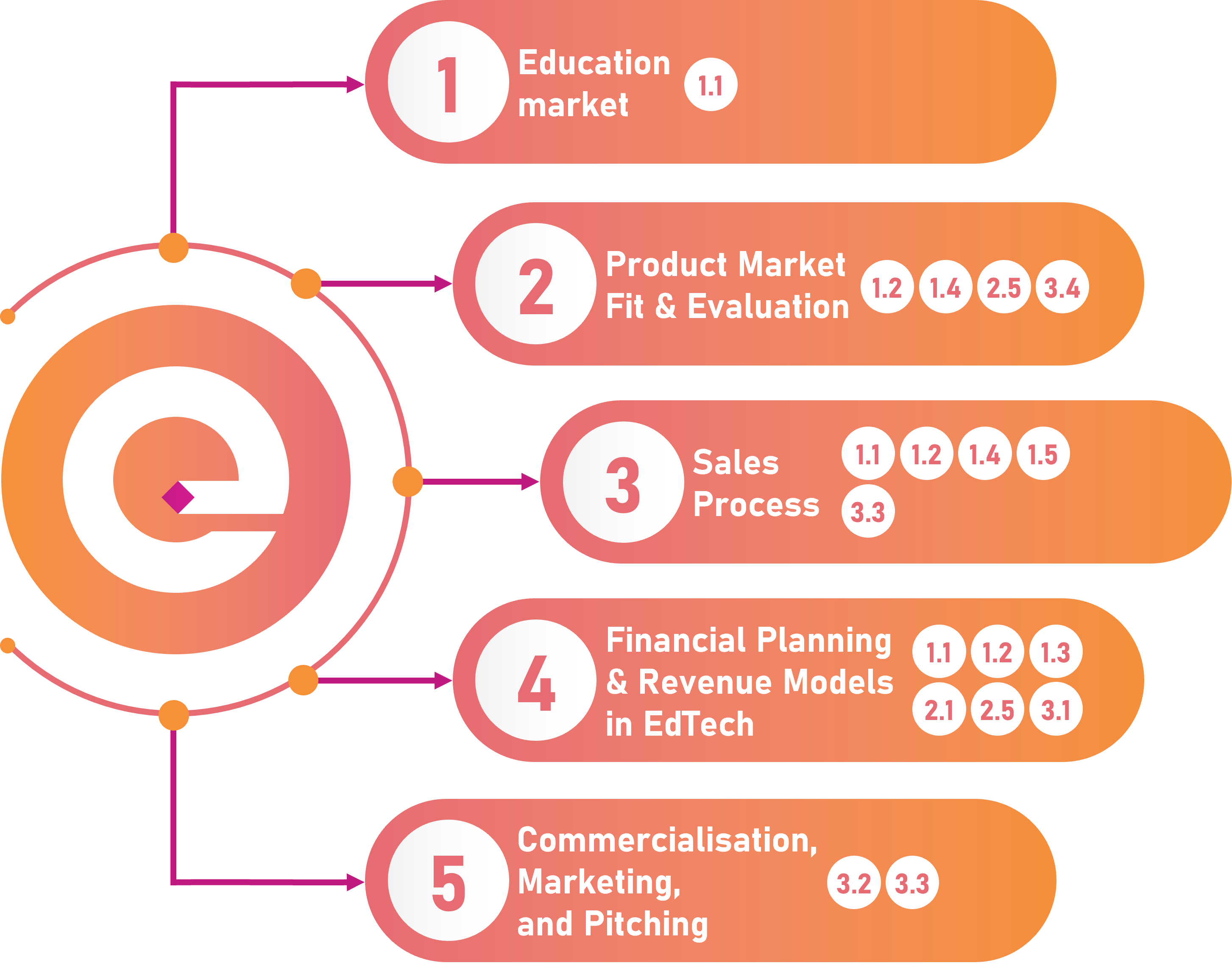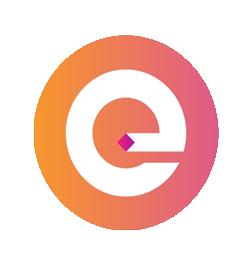ENTER EdTech MOOC Training Course
ENTER EdTech Partnership
Course Description

Didactical approach
Entrepreneurial learning is a specific learning methodology of entrepreneurs. It is a process of self-discovery and learning that helps entrepreneurs to grow and develop their products, services and their business. It helps them to identify their strengths and weaknesses, and to develop an innovation process. It also helps them to develop their own business model, to develop a product and to market their business. The benefits of entrepreneurial learning for entrepreneurs are many. Firstly, it helps them to develop a better understanding of their own business and their own capabilities. This understanding allows them to overcome any business challenges that they may face. It also helps them to develop an effective innovation process, which is essential for any business that wants to stay ahead of the competition. Finally, entrepreneurial learning helps entrepreneurs to develop a better business model. This approach can be used to identify and exploit any opportunities that are available to them.
In the ENTER-project we are following the approach to connect knowledge building directly to the application of knowledge in the form of dealing with case-studies or solving authentic tasks and problems in the training. This approach is used for the developed modules. Detailed instructions per module can be found at the end of this document. In the context of the learning innovation hubs, participation in courses will be followed by mentoring phases in which edupreneurs will be supported to transfer the acquired knowledge and skills to their own product and startup idea. Finally, the results will be presented in a BootCamp.
Mapping of developed modules with the EntreComp framework
The development of the modules was framed by the EntreComp framework by the European Commission. The EntreComp framework is the European Entrepreneurship Competence Framework (Bacigalupo, Kampylis, Punie and Van Den Brande, 2016). The framework has been constructed with an enormous methodological effort and it depicts 3 main areas with in total 15 sub-areas of competences which are explained by descriptors. The full framework evens adds 4 levels of proficiency to be able to differentiate between beginners, intermediate and experts. Since the target group of the ENTER project are students and EdTech entrepreneurs in the early phases we only use for the mapping the general model without proficiency levels and imply that we focus on the beginner level of the whole model. From the 15 sub-categories the modules developed in the project can be mapped to most sub-categories of the EntreComp framework (see figure 1).

Figure 1: Mapping of ENTER modules and EntreComp sub-dimensions
Course Modules - Learning outcomes
Education Market
Learning outcomes:
- recognize and become aware of the global, regional, and national EdTech markets
- understand and interpret projections for the growth of the market
- identify the most important stakeholders with a specific focus on the national market
Product Market Fit & Evaluation
Learning outcomes:
- understand purchase decision mechanisms and why people buy
- understand where the buyers get the most influence on the buying decision
- understand that buyer’s respond psychologically to visual elements and storytelling
- understand that value is relative; every buyer has his own scale
- understand that buyers tend to buy what others are buying i.e., the crowd effect
Sales Process
Learning outcomes:
- define product market fit
- identify your ideal customer segment
- conduct customer discovery research
- measure and observe product market fit
Financial Planning & Revenue Models in EdTech
Learning outcomes:
- be aware of the importance of the economic viability study for the business idea validation.
- be aware of the major financial consequences of a business opportunity
- conduct calculations: cost to design, operate, promote and price the product
- understand different selling and pricing methodologies
- become aware of funding opportunities for EdTech startups at the national, EU and international level
Commercialisation, Marketing, and Pitching
Learning outcomes:
- understand the meaning of commercialization and its key components
- understand the essential theory behind marketing strategy & the link to commercialization
- acquire the marketing tactics for promoting your start-up & your innovative idea (marketing tools, channels)
- understand the importance of social media in promoting your innovative educational product/service, and be in the position to develop targeted social media posts
- understand key approaches, methodologies, and business tools that assist in the commercialization of the product/service
- develop presentation and pitching skills to promote and launch the educational product/service (practice with the elevator pitch)
Didactical approach
Entrepreneurial learning is a specific learning methodology of entrepreneurs. It is a process of self-discovery and learning that helps entrepreneurs to grow and develop their products, services and their business. It helps them to identify their strengths and weaknesses, and to develop an innovation process. It also helps them to develop their own business model, to develop a product and to market their business. The benefits of entrepreneurial learning for entrepreneurs are many. Firstly, it helps them to develop a better understanding of their own business and their own capabilities. This understanding allows them to overcome any business challenges that they may face. It also helps them to develop an effective innovation process, which is essential for any business that wants to stay ahead of the competition. Finally, entrepreneurial learning helps entrepreneurs to develop a better business model. This approach can be used to identify and exploit any opportunities that are available to them.
In the ENTER-project we are following the approach to connect knowledge building directly to the application of knowledge in the form of dealing with case-studies or solving authentic tasks and problems in the training. This approach is used for the developed modules. Detailed instructions per module can be found at the end of this document. In the context of the learning innovation hubs, participation in courses will be followed by mentoring phases in which edupreneurs will be supported to transfer the acquired knowledge and skills to their own product and startup idea. Finally, the results will be presented in a BootCamp.
Mapping of developed modules with the EntreComp framework
The development of the modules was framed by the EntreComp framework by the European Commission. The EntreComp framework is the European Entrepreneurship Competence Framework (Bacigalupo, Kampylis, Punie and Van Den Brande, 2016). The framework has been constructed with an enormous methodological effort and it depicts 3 main areas with in total 15 sub-areas of competences which are explained by descriptors. The full framework evens adds 4 levels of proficiency to be able to differentiate between beginners, intermediate and experts. Since the target group of the ENTER project are students and EdTech entrepreneurs in the early phases we only use for the mapping the general model without proficiency levels and imply that we focus on the beginner level of the whole model. From the 15 sub-categories the modules developed in the project can be mapped to most sub-categories of the EntreComp framework (see figure 1).

Figure 1: Mapping of ENTER modules and EntreComp sub-dimensions
Course Modules - Learning outcomes
Education Market
Learning outcomes:
- recognize and become aware of the global, regional, and national EdTech markets
- understand and interpret projections for the growth of the market
- identify the most important stakeholders with a specific focus on the national market
Product Market Fit & Evaluation
Learning outcomes:
- understand purchase decision mechanisms and why people buy
- understand where the buyers get the most influence on the buying decision
- understand that buyer’s respond psychologically to visual elements and storytelling
- understand that value is relative; every buyer has his own scale
- understand that buyers tend to buy what others are buying i.e., the crowd effect
Sales Process
Learning outcomes:
- define product market fit
- identify your ideal customer segment
- conduct customer discovery research
- measure and observe product market fit
Financial Planning & Revenue Models in EdTech
Learning outcomes:
- be aware of the importance of the economic viability study for the business idea validation.
- be aware of the major financial consequences of a business opportunity
- conduct calculations: cost to design, operate, promote and price the product
- understand different selling and pricing methodologies
- become aware of funding opportunities for EdTech startups at the national, EU and international level
Commercialisation, Marketing, and Pitching
Learning outcomes:
- understand the meaning of commercialization and its key components
- understand the essential theory behind marketing strategy & the link to commercialization
- acquire the marketing tactics for promoting your start-up & your innovative idea (marketing tools, channels)
- understand the importance of social media in promoting your innovative educational product/service, and be in the position to develop targeted social media posts
- understand key approaches, methodologies, and business tools that assist in the commercialization of the product/service
- develop presentation and pitching skills to promote and launch the educational product/service (practice with the elevator pitch)

